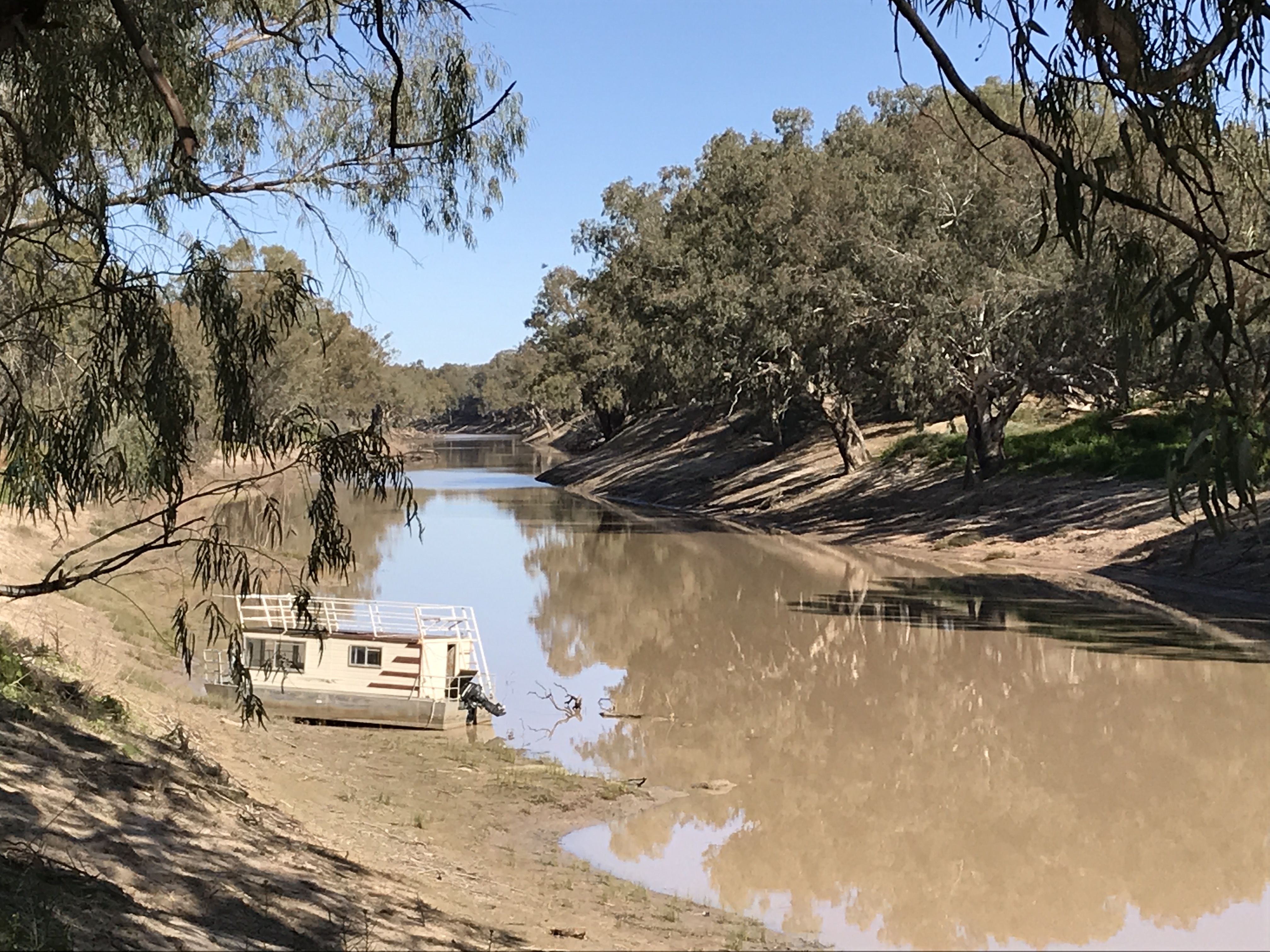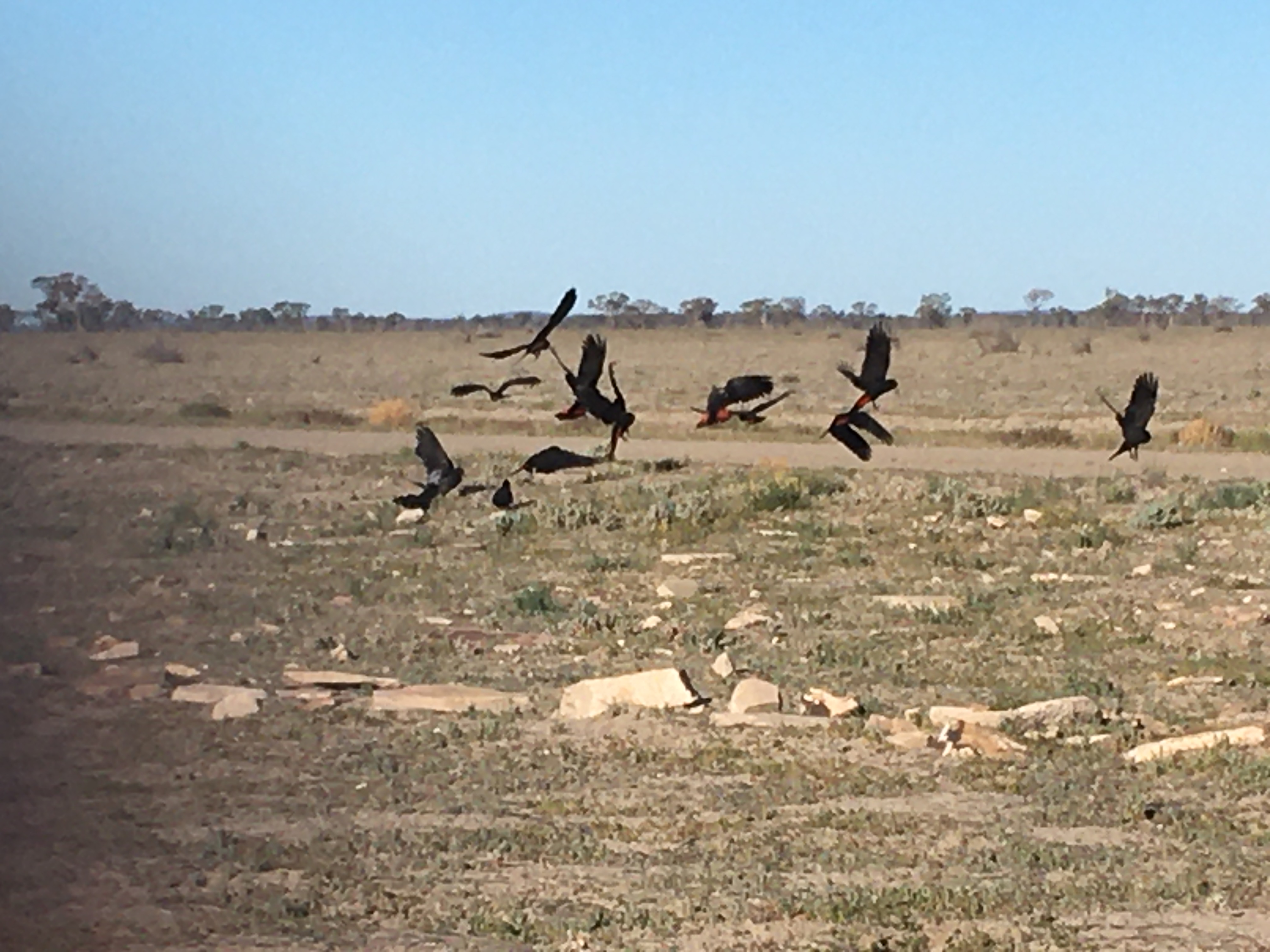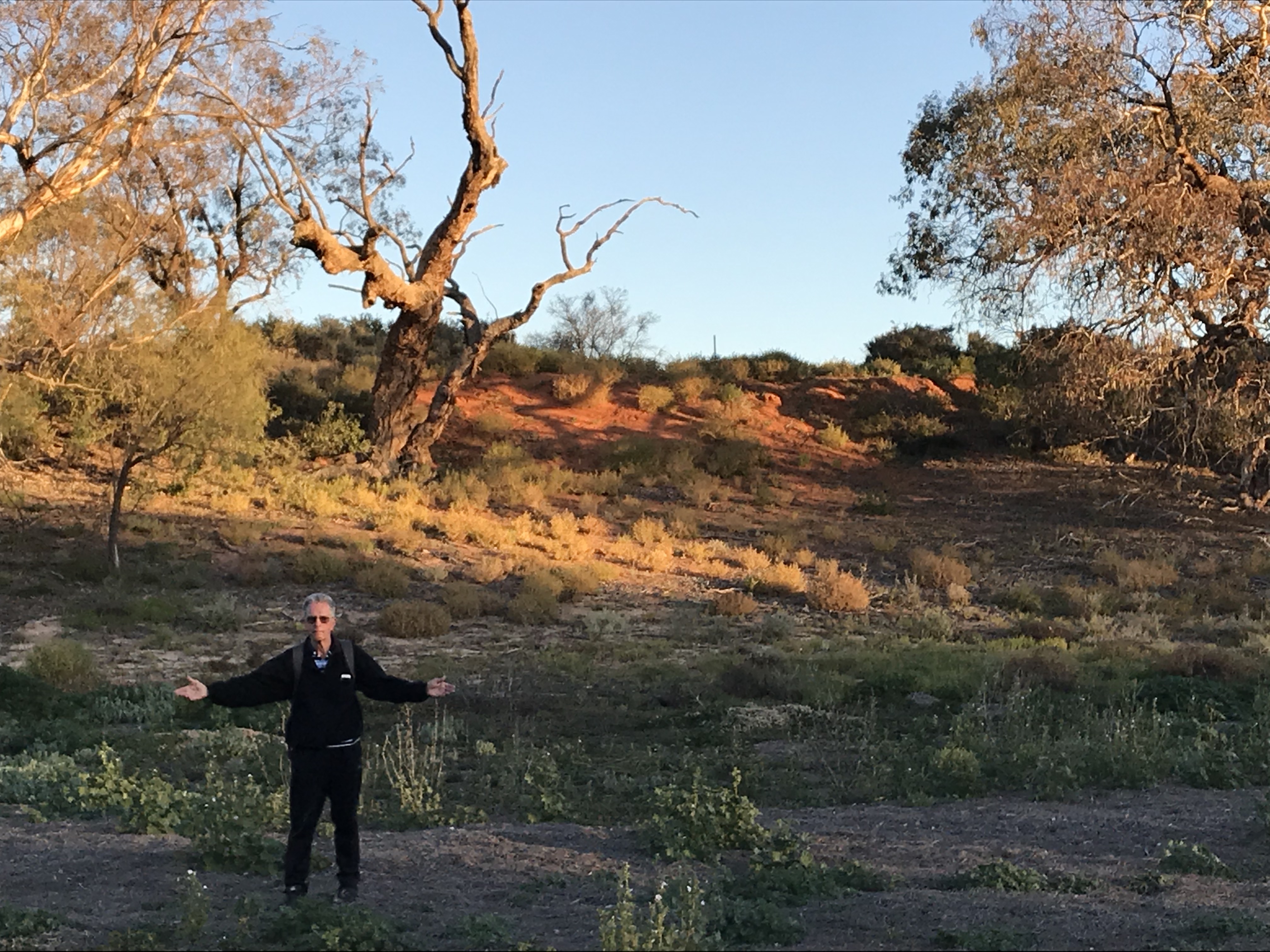The noise was deafening. I had wandered down to the Darling River for a morning walk. Momentarily standing to take a photo, I must have invaded their privacy. Hundreds of white cockatoos were screaming about what they scream about, loudly flapping their wings, it was as though the majestic gums had suddenly come alive attempting to persuade others of this miracle.
Many flew across the river still shouting while others stayed behind, a number of them quite small, with one romantic couple necking on a distant branch. I left them by the shallow and muddy Darling, its hostage boat stuck in its mud.
We’re officially in the outback, I thought, as we left over three hundred kilometres of road dust in our wake. Thousands of multicoloured and multi-sized goats (there because they may be the only animals that eat dust) ignored us or ran gamely across our path as we motored by. Emus watched us on the wide red dirt roads, white corrugated ones, and those with long narrow ruts.
The dead kangaroos in the meantime failed to see the signs warning of sharp dips, floodways and narrow cattle grids that kept us very aware of possible danger. Crows and smaller birds often left our path too late, but not so the stunning red tailed black cockatoos gathered on the roadside nibbling at the ground. Having a thing for these black beauties, I stopped dusting and walked out into the flat country’s saltbush to watch them finally fly away, their red tails signalling the show was over.
Our cockatoo day brought me back to our time in Gilgandra where Corrie was listening to a program on wise birds. Giselle, the author of a beautiful bird book, put their age at 95 million years, saying they are not just intellectually intelligent but also have emotional intelligence.
At home now by a dry river – the Darling – just a Billabong to attest that there once was a river. It will be a long walk into town and a late moonlight walk to achieve my numbers and reflect on an adventurous day.
I started out, my road was straight and sealed
No need to try, my life would simply happen,
But soon the seal would break so no more shield
The bitumen is broke, I need a strap on.
Now at the mercy of the current climate
The road becomes a little corrugated,
A bumpy road reflects my newest state
My future now is highly over-rated.
So now my dusty road will choke the past
The dust soon settles, now I see a future,
The potholes I won’t feel if I go fast
The road I now am on does need no suture.
I know now where I’m going, my path is clear
No matter what the road – I have no fear.




I love the very reflective and metaphorical sonnet Will.
Thanks Mark, lovely to have you join us now back on a sealed road
Hello dear Will and Coralie
We really appreciate the daily journal, photos and poetry. I have to say I love the poetry you are writing now, linked to your daily experiences, and read it out to Janine who also really enjoys it. Some lines such as “The bridge across its feelings speaks to me. “I once was whole, I used to be a tree” are classic and beautiful. So we are travelling with you, and being educated along the way.
Of course, we had heard about Lightning Ridge, but when you were there I looked it up on the Web, and found some of the descriptions and stories fascinating. I also discovered many poets having written about it – two that stood out were Laurie Hudson (whose great poem about the black opal was found on a tip at Lightning Ridge!), and and Francis Duggan (“The Miners of Lightning Ridge”). I loved that colourful photo of the Opal Cave!
Janine and I have been to many inland towns such as Bourke, Moree, Tenterfield, Broken Hill, etc. because of the training I’ve done there. Not the same experience though as what you are experiencing, and I have a slight touch of envy, as you both absorb the essential nature of what this vast country has to offer. You both are going the path less travelled – by foot anyway!
Blessings from us both.
I’m glad you like them Narayan, you’ve been around you two. I will look up those poets, saw no evidence of their works there, talk soon